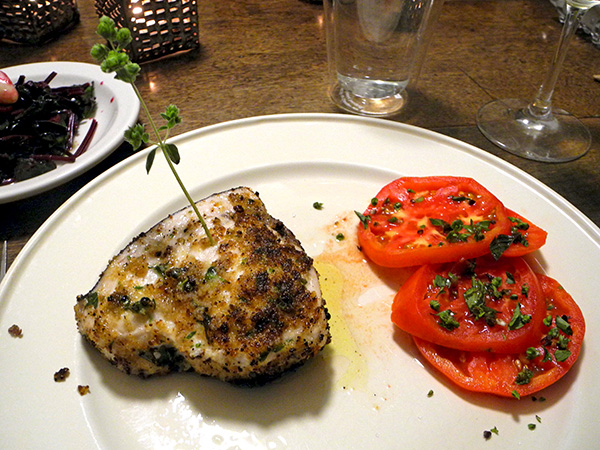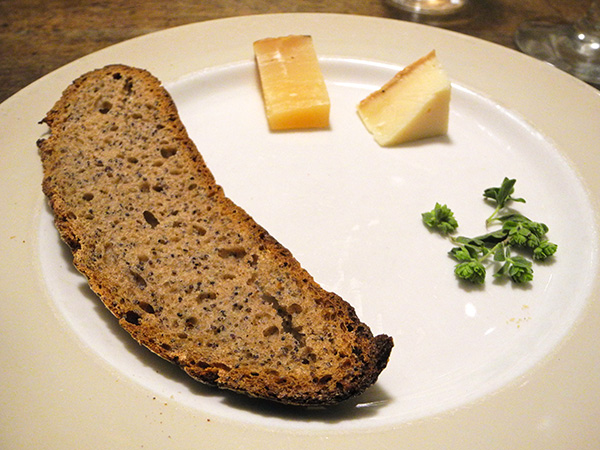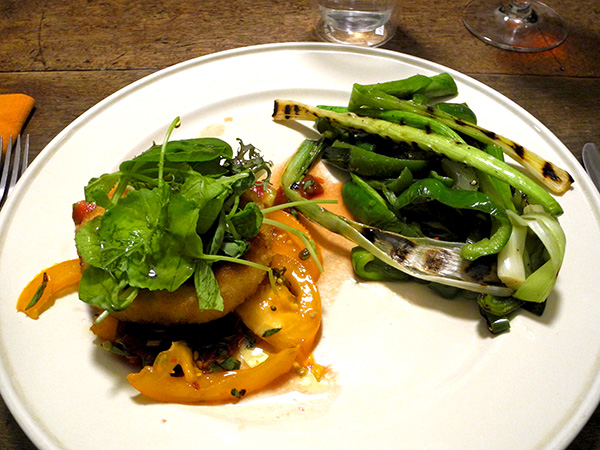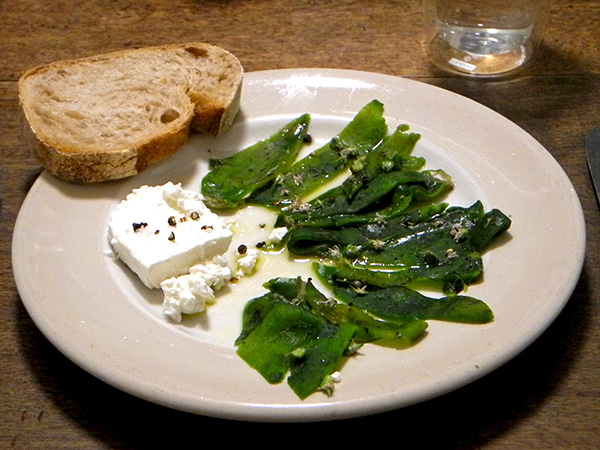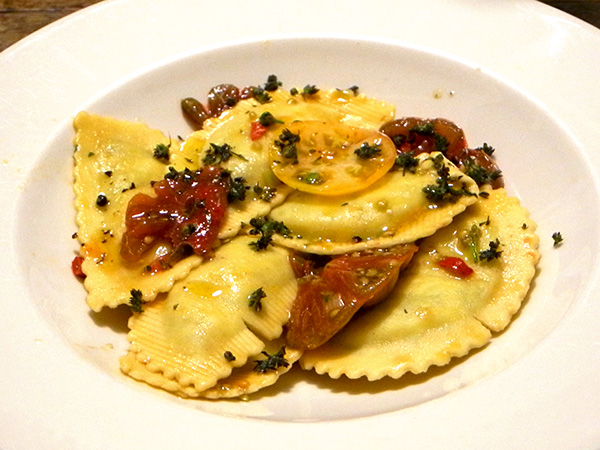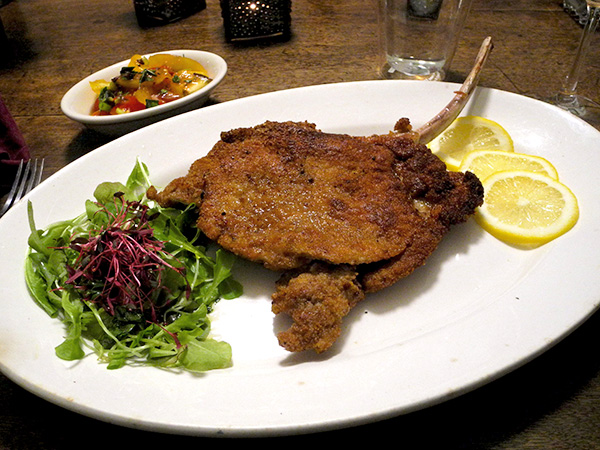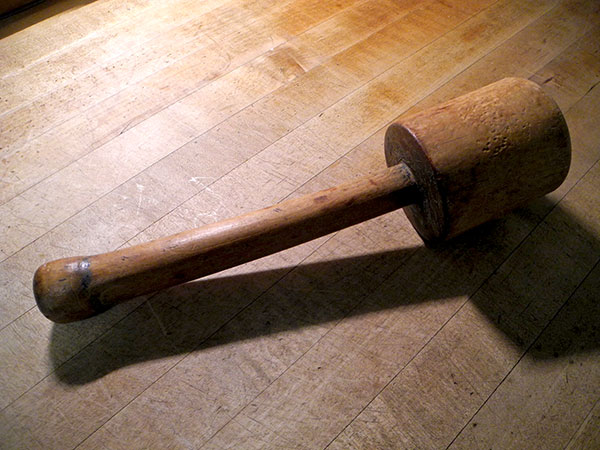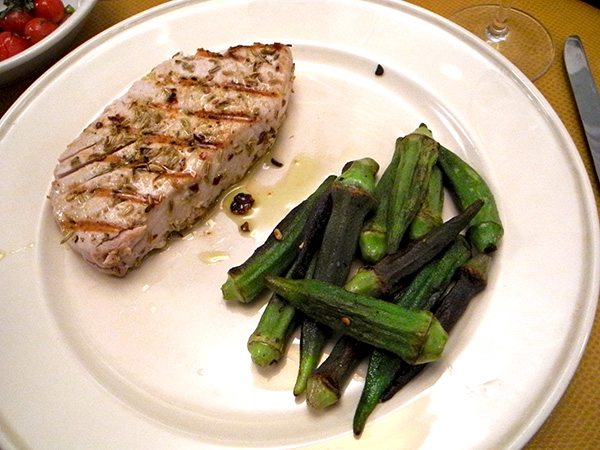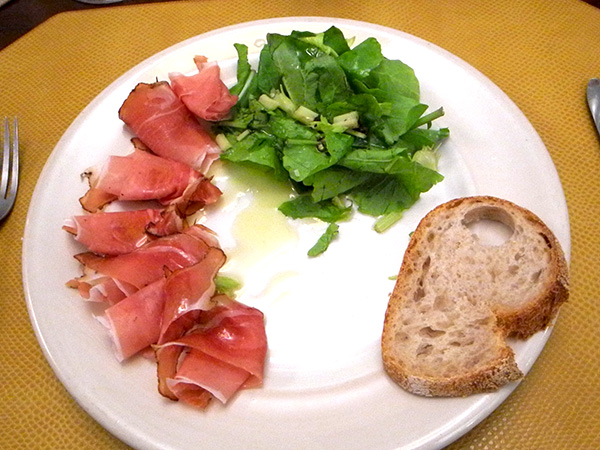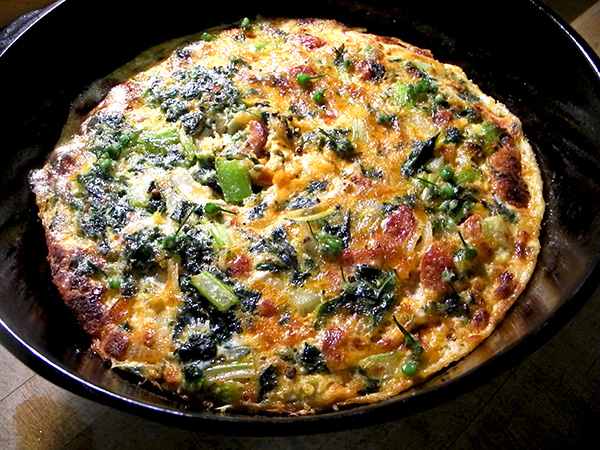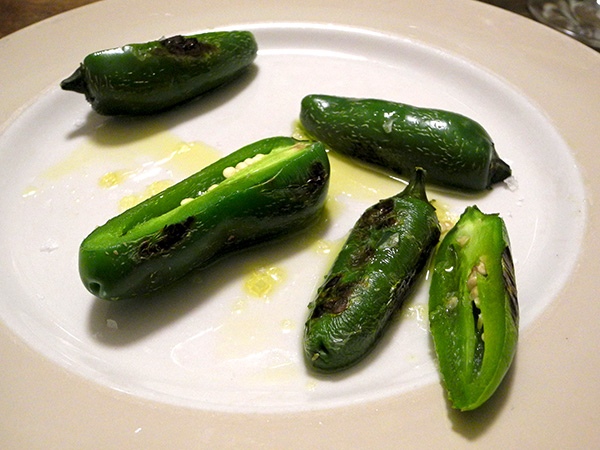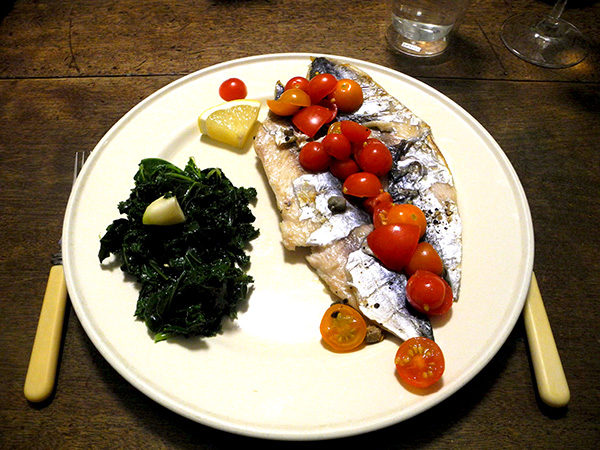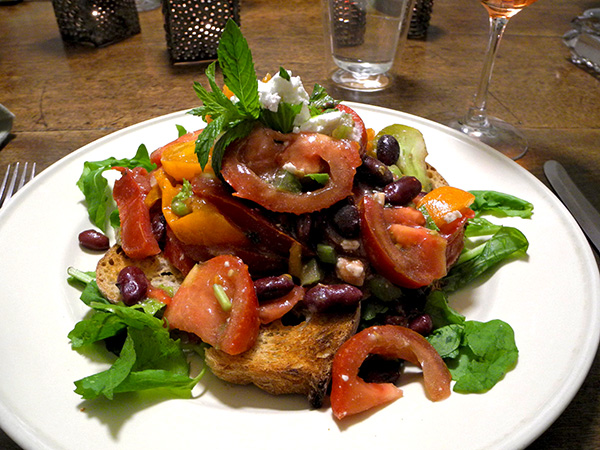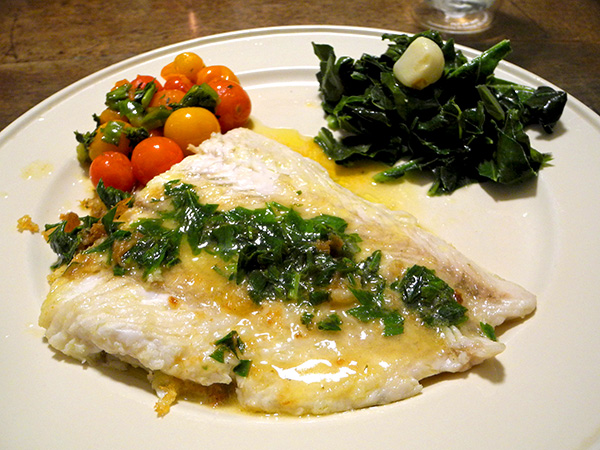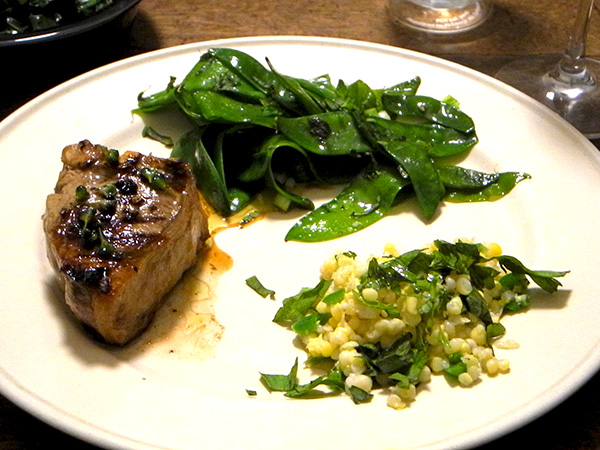Yes, that’s a branch of oregano sticking out of the steak. The idea of a garnish is generally alien to Italian cooking, but I’m not entirely strict about following cooking traditions, and I did have these two beautiful stems left over after preparing enough herbs to cover the two steaks.
We’re both very fond of Swordfish, and we appreciate the many ways it can be prepared, some of which I have worked with myself. This particular method relates to the Sicilian style (Trancia di Pesce Spada alla Siciliana), as described by Kyle Phillips, although lately I have taken the liberty of adding a very American ingredient, ramp fruit.
It’s a terrific dish.
- a one pound swordfish steak, more than an inch thick, from P.E. & D.D. Seafood, cut into two pieces, briefly marinated in a mixture of olive oil, crushed ramp fruit from Berried Treasures and chopped fresh oregano leaves from Stokes Farm, then drained well and rolled in dried homemade bread crumbs, fried in a hot cast iron pan for about 4-5 minutes on each side, salted, sprinkled with a little lemon juice and drizzled with olive oil before serving
- one ripe heirloom tomato from Berried Treasures, sliced, sprinkled with Thai basil from a friend’s garden in Garrison, New York, then drizzled with the rich savory juices which remained from a salsa prepared the day before
- beet greens from Tamarack Hollow Farm, wilted with a halved garlic clove from Berried Treasures, which had been been able to sweat in olive oil, seasoned with salt, and pepper, and drizzled with fresh olive oil
- a small additional course of two Consider Bardwell goat cheeses (‘Danby’, appearing here as a late season lagniappe, and ‘Manchester’), a sprinkling of fresh oregano buds, again from Stokes Farm, and slices of the very sturdy, ‘Tourte de Seigle’ (organic dark rye flour, poppy seeds, liquid levain (sourdough starter), Breton Guérande gray salt) from Maison Kayser
- the wine was an Italian white, Le Salse Verdicchio di Matelica 2014
- the music was the second act of Mozart’s ‘Il dissoluto punito, ossia il Don Giovanni‘ [The Rake Punished, or Don Giovanni], conducted by Carlo Maria Giulini, with Eberhardt Wächter, Elisabeth Schwarzkop, and Cesare Valletti, et al.
